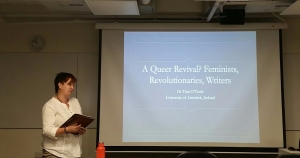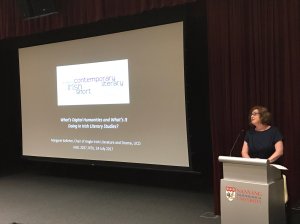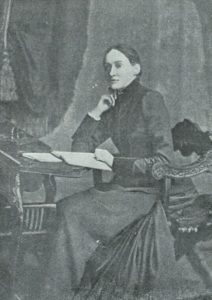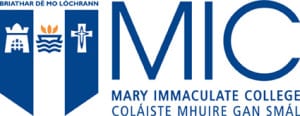IASIL 2017: New Horizons for Irish Literary Studies
by Rebecca Graham, University College Cork
 If, during the last week of July, you were searching for members of the International Association for the Study of Irish Literatures (IASIL), your quest would have taken you all the way to Singapore. This city-state in South East Asia may not be the first place you think of when considering a major conference of Irish writing, but this is where IASIL’s annual conference was held this year and it turned out to be the perfect setting.
If, during the last week of July, you were searching for members of the International Association for the Study of Irish Literatures (IASIL), your quest would have taken you all the way to Singapore. This city-state in South East Asia may not be the first place you think of when considering a major conference of Irish writing, but this is where IASIL’s annual conference was held this year and it turned out to be the perfect setting.
In fact, Ireland and Singapore have many similarities: both are small in size and population and yet are world leaders in particular industries; both have a history of colonisation and political upheavals; both are lush and gorgeous and warm (well maybe Singapore has a slight advantage when it comes to weather). So why Singapore? IASIL prides itself on being a truly international organisation with members throughout the world. Every year researchers travel huge distances to attend IASIL’s conferences. IASIL has a sister association, IASIL Japan, which organises Irish literary conferences and events for its members in Asia. When Neil Murphy (Conference Director) and the organising committee in the English Department at Nanyang Technological University (NTU) offered to host the conference, it made perfect sense to bring IASIL to a part of the world which has embraced Irish literature so enthusiastically (for more on this, see Neil Murphy’s article about the conference in The Irish Times.
IASIL’s annual conferences provide Irish literary researchers and writers opportunities to meet and make connections with other academics and writers, to learn from and engage with some of the leading scholars in the field, and to disseminate their research to a receptive and welcoming audience. I have heard that Irish literature conferences tend to be relaxed and enjoyable, and I’ve been to conferences which have lived up to this expectation. However, there was something in the air in Singapore (besides gorgeous thirty-degree heat) which imbued the conference with warm, balmy feelings of collegiality and inclusivity (maybe it was the heat) that I have never before experienced.
The conference theme was broadly about Ireland’s writers in the twenty-first century  but, in keeping with IASIL’s mission of inclusivity, papers on any aspect of Irish writing were also considered. It was refreshing to see so many papers about women writers including those about Eavan Boland, Sinead Morrissey, Vona Groarke, Nuala Ní Dhomhnaill, Deirdre Madden, Eimear McBride, Maeve Brennan, Maria Edgeworth, and particularly inspirational were the papers about lesser known writers such as Freda Laughton, Elizabeth Griffin, and Leland Bardwell. Laureate for Irish Fiction, Anne Enright, had a panel dedicated to her work, as did Emma Donoghue and Marina Carr. However, in contrast, there were eight panels about James Joyce, or Samuel Beckett, or a combination of both Joyce and Beckett. Certainly, there is still a gender bias in what Irish literary scholars are researching and writing about. Yet, the number and diversity of academics (both female and male) who are researching Irish women writers, and the enthusiasm and intellectual rigour of their papers, bodes well for the representation of women’s writing in the future of Irish literary research.
but, in keeping with IASIL’s mission of inclusivity, papers on any aspect of Irish writing were also considered. It was refreshing to see so many papers about women writers including those about Eavan Boland, Sinead Morrissey, Vona Groarke, Nuala Ní Dhomhnaill, Deirdre Madden, Eimear McBride, Maeve Brennan, Maria Edgeworth, and particularly inspirational were the papers about lesser known writers such as Freda Laughton, Elizabeth Griffin, and Leland Bardwell. Laureate for Irish Fiction, Anne Enright, had a panel dedicated to her work, as did Emma Donoghue and Marina Carr. However, in contrast, there were eight panels about James Joyce, or Samuel Beckett, or a combination of both Joyce and Beckett. Certainly, there is still a gender bias in what Irish literary scholars are researching and writing about. Yet, the number and diversity of academics (both female and male) who are researching Irish women writers, and the enthusiasm and intellectual rigour of their papers, bodes well for the representation of women’s writing in the future of Irish literary research.
At this point I should probably reveal my bias. I am postgraduate representative for IASIL and my role is to promote and encourage postgraduates to engage with the association and to attend the conferences, and to communicate postgraduates’ issues and concerns to the IASIL Executive committee. IASIL is committed to encouraging and supporting postgraduates and early career researchers. Every year the association provides scholarships for postgraduate students to attend the annual conference. This year’s conference organisers also provided scholarships to support postgraduates and generously waived the registration fee for postgraduates. During the conference, Ondrej Pilny (IASIL Chairperson) and Emilie Pine chaired a postgraduate workshop on publishing and careers advice. This practical and informative workshop covered all aspects of the publishing process, including how to engage with potential editors, how to choose a publication that suits your work, the impact factors of journals, and the importance of being aware of and adhering to a publication’s style and standards. The workshop also included advice on career planning, how to prepare for job interviews, and how to make successful postdoctoral grant applications. Dr Pilny and Dr Pine generously shared their time and expertise, answered all of our questions, and provided support and encouragement for all workshop participants. These initiatives to include and support postgraduates have been effective as approximately one-third of this year’s conference delegates were postgraduates. This is encouraging for the future of the association as the next generation of scholars benefit from and engage with IASIL.
 Throughout the week, conference delegates benefitted from the exceptional and varied keynote addresses and plenary panels. The plenary panels consisted of three senior scholars who delivered papers on a shared theme. These panels were scheduled not to clash with other panels so they gave welcome opportunities for the entire conference delegation to come together. The first plenary panel was on the theme of ‘Art, Poetics, and Vital Images: Constructing Experience in Contemporary Female Irish Writers’ and the speakers, Hedwig Schwall, Derek Hand and Shirley Chew, provided contrasting and insightful discussions of different aspects of contemporary women’s writing. The keynote addresses included a question posed about digital humanities and its place in Irish literary studies which was comprehensively and convincingly answered by Margaret Kelleher, Gerry Smyth’s unique and provocative talk on treason and betrayal in contemporary Irish fiction, and an inspiring and timely discussion of modernism in relation to novels by Kevin Barry, Eimear McBride and Mike McCormack delivered by Derek Attridge. There were also a number of book launches during the conference which gave scholars the opportunity to promote the works of their peers and also gave an indication of some new directions in Irish literary research.
Throughout the week, conference delegates benefitted from the exceptional and varied keynote addresses and plenary panels. The plenary panels consisted of three senior scholars who delivered papers on a shared theme. These panels were scheduled not to clash with other panels so they gave welcome opportunities for the entire conference delegation to come together. The first plenary panel was on the theme of ‘Art, Poetics, and Vital Images: Constructing Experience in Contemporary Female Irish Writers’ and the speakers, Hedwig Schwall, Derek Hand and Shirley Chew, provided contrasting and insightful discussions of different aspects of contemporary women’s writing. The keynote addresses included a question posed about digital humanities and its place in Irish literary studies which was comprehensively and convincingly answered by Margaret Kelleher, Gerry Smyth’s unique and provocative talk on treason and betrayal in contemporary Irish fiction, and an inspiring and timely discussion of modernism in relation to novels by Kevin Barry, Eimear McBride and Mike McCormack delivered by Derek Attridge. There were also a number of book launches during the conference which gave scholars the opportunity to promote the works of their peers and also gave an indication of some new directions in Irish literary research.
While the days of the conference were filled with stimulating papers and inspiring intellectual debates, the evenings were brimful with entertaining events which brought together the cultures of Ireland and Singapore: readings by Irish writers Nuala Ní Dhomhnaill, Marina Carr, Deirdre Madden, Eoin McNamee and Julian Gough alongside Singaporean writers Pooja Nansi, Samuel Lee, Cheryl Julia Lee, Grace Chia, Ng Yi-Sheng, and Desmond Kon; a performance of selected scenes from Marina Carr’s By the Bog of Cats by NTU students and directed by Sarah Jane Scaife; an evening of conversation and delicious food at the Irish Ambassador’s Residence in an opulent suburb of the city; and a tour of downtown Singapore with the welcoming and friendly conference helpers (postgraduate students at NTU).
The IASIL conference of 2017 was a definite success: a week of deep academic discussion and debate, moments of fun and enjoyment in a convivial and relaxed atmosphere, cultural engagements and interconnections, delicious food and drink, and all underscored by the soothing sounds of the cicadas hidden in the trees of NTU’s green campus. I cannot think of a better way to expand the horizons of a scholarly field than by travelling to new places and experiencing diverse perspectives which enrich and enliven the ongoing conversation.
Follow IASIL on Facebook and Twitter @Irish_Lit for updates on Irish literary news and views.
If you would like to submit a blogpost please contact Dr Deirdre Flynn



